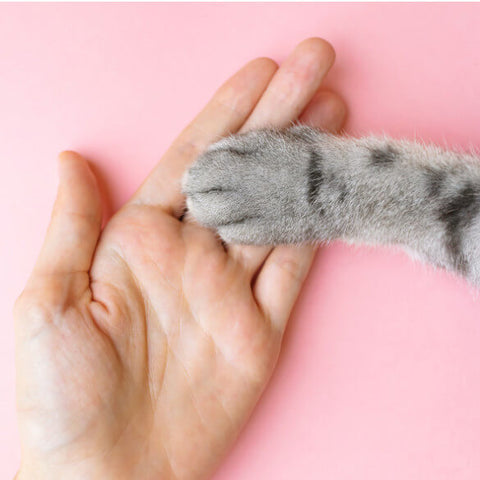CRUELTY-FREE AND VEGAN BEAUTY - THE ULTIMATE GUIDE
THE SAD TRUTH ABOUT MOST "CRUELTY-FREE" BRANDS
The word Cruelty-free is used a lot when talking beauty.
It is easy to see brands using it to let you think they do not test on animals, to convince you to purchase their products. The word is, in fact, often misused, causing people to think it is as easy as trusting what a brand say.
As a result there is so much confusion about the topic and we feel the urge to inform you about what you should know when purchasing cosmetics and what cruelty-free and vegan beauty really means.
We often see brands, which we know are not cruelty-free, stating they do not perfom any animal testing. We often see brands stating they are cruelty-free without holding any kind of certification. We often see brands holding some type of certification which is not trustworthy.
We have written this detailed guide to clarify essential aspects and key elements of this delicate topic to let you know about what it is happening behind the scenes of the beauty industry.
This guide takes into account what the European legislation about animal testing states and does not cover in such details other continents legislations.

LET´S GO DEEPER INTO IT: CURRENT EUROPEAN LEGISLATION AND THE BAN ON ANIMAL TESTING
Europe is currently one of the best continent when it comes to banning animal testing, yet also here there is a lot to consider.
In Europe, it is illegal to test on animals the finished product as well as its ingredients since 2013. The ban on animal testing on the single ingredients had already been put into force since 2009 for all companies manufacturing their products in Europe.
Since 2013 also companies not manufacturing in Europe, wishing to sell their cosmetic products in the European market must not conduct any animal testing (on ingredients as well as on the finished product) starting from the 11th March 2013.
This was a huge step ahead. Unfortunately, the legislation only covers the cosmetic industry and does not include other industries, such as the pharmaceutical one, manufacturing of household products, food industry (testing of food additives) and many more. For these industries animal testing is still allowed and this big exception may cause ingredients tested on animals in other industries to still end up on beauty products.
THE CHINA ISSUE
Another aspect to consider is selling to China, where animal testing is required by law for all imported cosmetics not manufactured in the country, even on the finished product. A company may sell its products in Europe without testing on animals but does it when selling to China. Even if this sounds like a paradox, it happens all the time.
There are some exceptions when it comes to online selling directly to Chinese consumers, but even in this case there is no big guarantee that it will never be required to re-test the products if required by the authorities. Our advice? Stay away from it, unless certified by a trustworthy organization which knows Chinese regulations very well.
DARLING, LOOK FOR THE RIGHT CERTIFICATION!
It is easy to see that the reality is way more complicated than just a company stating that it is cruelty-free. Also, since the manufacturing of a cosmetic product often involves several parties with suppliers of suppliers mostly distributed all over the world, it is hard for a company to tell whether or not animal testing is occurring at some stages of the supply chain.
As you can see, a company which does not have a certification and states its products are cruelty-free is not being entirely honest with you. We do not believe that such companies do bad or aim to support animal cruelty, but you should be aware that just having good intentions is not enough.
But be careful: not all certifications have the same evaluating standards and if a certification does not impose companies to have a fixed cut-off date, it is not a reliable one, since companies must make sure they will not use any new ingredient tested after 2013 for their products. This will avoid the chances of an ingredient ending up in cosmetics, which might have been tested on animals in other industries.
Also, reliable certifications make sure all the required documentation is provided by companies and strictly research, evaluate and monitor them carrying out audits.
The only organizations with strict policies in Europe are the Leaping Bunny Program, Naturewatch Foundation, ICEA and a few more.
This is why Realness of Beauty only offers brands which are certified by these organizations.
VEGAN
You might already know what this means in cosmetics: no animal-derived ingredients are contained in that specific product.
It is crazy to think that so many ingredients commonly used in cosmetics are derived from animals and are not easy to be recognized in the ingredient list. From snail slime, to collagen, animal-derived stearic acid, lanolin, elastin, sodium tallowate and much more.
The only way to be sure you are purchasing a vegan product is looking for the Vegan label or asking the manufacturer when this is not present.
Shopping vegan and cruelty-free can be a daunting experience and we know it very well. This is why Realness of Beauty was born and we are now there to make your life easier, turning vegan & cruelty free beauty into a cool, enjoyable experience accessible to anyone.



